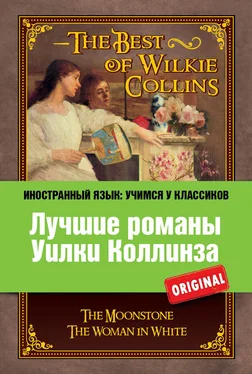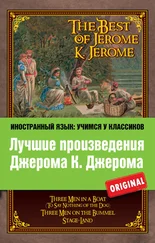Cecilia Metella– a daughter of a Roman consul; her tomb, a circular mausoleum on a square base, constructed at the times of Emperor Augustus, is a place of interest in Rome nowa-days
fly– a one-horse carriage (long out of use)
odds and ends– small articles of various sorts, usually not valuable
Judas– Judas Iscariot, one of the 12 Apostles of the 1st cen-tury, the Apostles’ treasurer; little is said about him in the Gospels; he is known as a man who betrayed Jesus
ante-room– a waiting-room
Oratorios– an oratorio is a musical composition for voice and orchestra, usually with a religious subject
Rossini– Gioachino Rossini (1792–1868), a famous Ital-ian composer, the author of comic and historic operas; his most famous opera, ‘The Barber of Seville’, was written in 1816
Moses in Egypt– a historic opera by Gioachino Rossini
recitativo– in opera, a style of music between singing and talking
sotto voice– in a low voice (Italian)
French windows– large windows that serve as doors to the balcony or to the garden
eau sucree– sugar water (French)
go to the dogs– be ruined
trellis-work– wooden structures for supporting climbing plants
Punch– a grotesque ugly hump-backed figure in a puppet-show
Vandals– a Germanic tribe which invaded Gaul, Spain and North Africa in the 4th–5th centuries AD
Popery– Roman Catholicism
Creole– a person of mixed European and African origin
debility– weakness
i n lieu of– instead of
Torquay– a beautiful town on the seacoast in the historic county of Devon
Devonshire– Devon, a historic county of England to the east of Cornwall and to the west of Dorset and Som-erset
chaise– a horse carriage used for driving for pleasure
Islington– an inner borough of London, north of the City of London; the name Iseldone was first mentioned in Domesday Book in 1086.
Aneurism– widening of artery, a serious and even fatal dis-ease
Lyons– a large industrial city in east-central France, found-ed as a Roman military colony in 43 BC
Leicester Square– a square in central London with theatres, cinemas and restaurants in it
Chancery Lane– a street in central London where courts and lawyers’ offices are located
metaphysical– based on speculative philosophy or abstract reasoning
Hyde Park– the park in central London, in the borough of Westminster to the west of Mayfair
stratagem– a trick to deceive smb
Gray Inn’s Road– a street between the City of London and Westminster
Derby– a city on the River Derwent in the historic county of Derbyshire, founded in the 9th century by the Danes
Grimsby– a town and port in the historic county of Lin-colnshire in the east of England
Lincolnshire– a county in eastern England along the North Sea coast
Norfolk– a county in eastern England, with Suffolk in the south, the North Sea in the northeast and Lincolnshire in the west
without rhyme or reason– nonsensical
vestry– in Anglican Church, a part of church where meet-ings to discuss parish business are held
Arabia– a desert region on the peninsular bounded by the Red Sea, the Arabian Sea and the Persian Gulf
Palestine– a region with rich history in the eastern Mediter-ranean known as the Holy Land
the Queen’s English– the English language spoken in Great Britain
Bath– a city and health resort on the River Avon in the historic county of Somerset; Bath is known for its nature and elegant architecture.
Fulham– an inner borough of London to the north of the River Thames and to the west of Chelsea, with a lot of 19th century residential houses
the Crystal Palace– a giant glass exhibition hall in Hyde Park
Lucrezia Borgia– an opera by Gaetano Donizetti; a repre-sentative of the Borgia family, daughter of Pope Alexander VI and sister of Cesare Borgia, Lucrezia Borgia (1480–1519) par-ticipated in their crimes.
Donizetti– Gaetano Donizetti (1797–1848), a famous Ital-ian opera composer
the Seine– a river in France flowing through Paris into the English Channel at Havre
en route– on the way to (French)
the Holy Roman Empire– a historic union of western and central European countries in 800–1806
the Order of the Brazen Crown– a secret order of the crown of the Holy Roman Empire created in the 10th century
Arch-Master– in a masonic order, the Head Master of the order
Rosicrucian Masons– a worldwide brotherhood; their symbol is a rose and a cross; their teachings include esoteric wisdom, mysticism and some religious beliefs of the past
Mesopotamia– a historic region in Asia between the Ti-gris and the Euphrates rivers, an ancient cultural centre in the Middle East
Newton– Sir Isaac Newton (1642–1727), the greatest Eng-lish scientist whose discoveries, laws and principles laid the foundation of modern science
Nero(37–68) – a Roman emperor known for his infamous behaviour, the burning of Rome and the prosecution of the Christians
Читать дальше
Конец ознакомительного отрывка
Купить книгу












